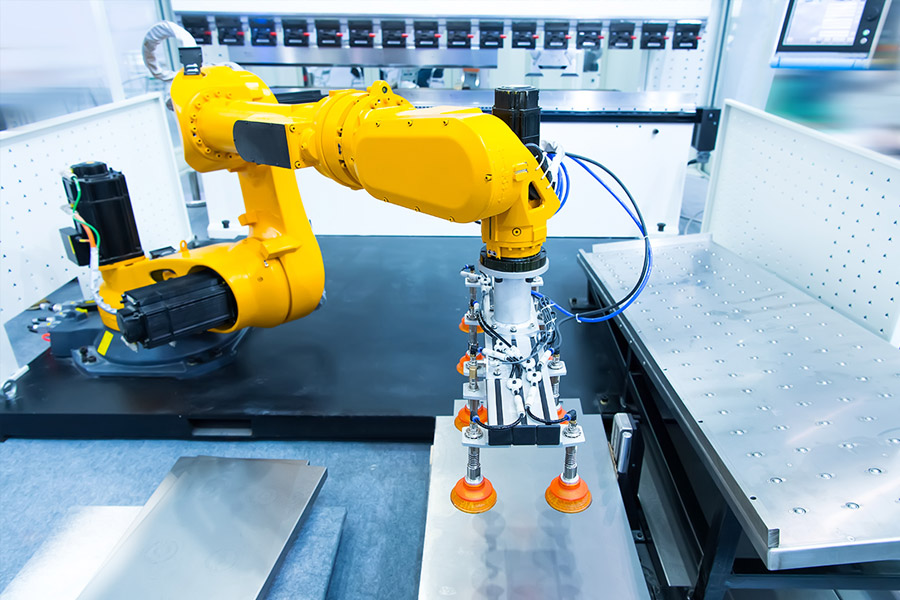Georgia Guidance Issued On Manufacturing Exemption

The Georgia Department of Revenue issued determination LR SUT 2017-19 on whether a taxpayer’s purchases of bulbs, lamps, and light fixtures were subject to Georgia sales and use tax. Specifically, the Department determined if bulbs, lamps, and light fixtures attached to a building or land qualify as manufacturing machinery or equipment.
The taxpayer is a manufacturer that purchases bulbs, lamps, and light fixtures for use in their manufacturing and administrative areas. The items are purchased for general use, but in some instances are purchased for specific applications. Of note, while the light fixtures at issue are attached to the building, their removal would not damage either the building or the fixture itself.
Georgia imposes a tax, albeit subject to certain exemptions, on the retail purchase, retail sale, storage, use, or consumption of tangible personal property, certain enumerated services, and utilities. There are several sales and use tax exemptions specific to the manufacturing industry, for those entities that qualify as a “manufacturer”. A “manufacturer” is a person or business, or a location of a person or business that is engaged in the manufacture of tangible personal property for sale or further manufacturing. However, businesses that primarily engage in providing services or operate retail outlets, such as, grocery stores, pharmacies, bakeries, or restaurants, are not considered manufacturers.
The sale, use, and storage of machinery or equipment necessary to assist in the manufacture of tangible personal property is exempt from sales and use tax. The term “equipment” means tangible personal property, other than machinery and industrial materials, that are generally designed for long-term continuous or repetitive use. This term includes consumable supplies, which are considered to be tangible personal property that is consumed or expended during the manufacture of other tangible personal property. The term “fixtures” means tangible personal property that has been installed or attached to land or to any building with the intention that it remain permanently. Fixtures are considered to be real property. This is notable because the Department establishes that real property is specifically excluded from the definition of equipment or machinery.
Based on the taxpayer’s presented facts, the Department held that light bulbs or lamps used by a manufacturer in the manufacture of tangible personal property qualify as manufacturing equipment, and as such, are exempt from sales and use tax. Contrarily, the specific exclusion of real property from qualifying as machinery or equipment results in the Georgia manufacturing machinery and equipment exemption not extending to fixtures, including the referenced light fixtures. Therefore, the light fixtures purchased by the taxpayer are subject to sales and use tax.
Georgia provides that manufacturers’ purchase, use, and storage of machinery or equipment that is necessary and integral to the manufacture of tangible personal property are exempt from sales and use tax. Irrespective of the equipment’s durability, if the item was consumed or expended during the manufacturing process it will be deemed exempt. This exemption however does not apply to real property. Although the removal of a fixture may cause no damage, Georgia opines that any fixture that has been attached with the intention to remain permanently be classified as real property. As such, fixtures do not qualify for the manufacturing exemption.
If you have erroneously remitted taxes on qualifying manufacturing machinery and equipment, you may qualify for a tax refund. To apply for a tax refund with the Georgia Department of Revenue, Taxpayers may submit the applicable ST-12 Claim for Refund. A qualified tax attorney can assist with the execution of the application and potential questions or concerns that may arise in the process
Jeanette Moffa is an attorney who concentrates on state and local taxes at Moffa, Sutton, & Donnini, P.A. She is an executive council member of the American Bar Association Tax Section State and Local Tax Committee and the Florida Bar Tax Section. Ms. Moffa is an author of both the CCH’s Expert Treatise Library: Sales and Use Tax as well the ABA’s Sales and Use Tax Deskbook. In addition, her regular columns on state and local tax issues can be found in State Tax Notes and Actionline, a publication from the Florida Bar’s Real Property, Probate, and Trust Law Section. She also serves as assistant editor to the Sales and Use Tax Deskbook and Actionline. Ms. Moffa is a regular speaker at the American Bar Association Tax Section conferences, the Institute of Professionals in Taxation, the Florida Bar Tax Section, the Florida Bar Real Property, Probate, and Trust Law Section, and the FICPA. In her free time, she teaches as an adjunct professor at Broward College.



